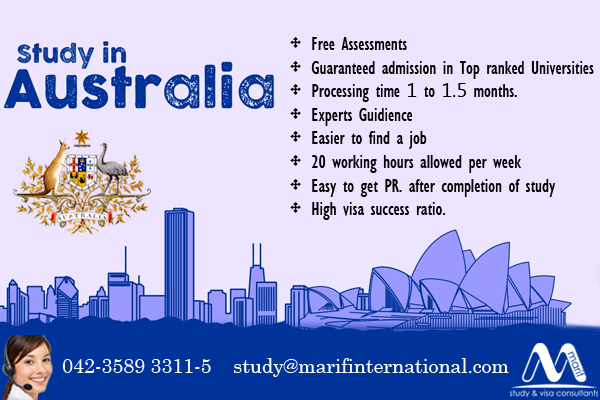WELCOME TO PRIME
Prime Education has a long-standing reputation for being one of the most comprehensive study abroad consultants in Nepal. We are situated at Lagankhel Bus Stand, Lagankhel, Lalitpur (Patan), Nepal. Our organization has single-minded focus; to guide students to reach the dream country for their further education. We represent different universities/colleges situated in Japan, Australia, Canada, New Zealand, Germany, Poland, and Cyprus.
COUNTRIES WE REPRESENT
Course Selection
We help prospective students choose the destination, course and institution that match their personal circumstances such as academic, employment and financial background.
Getting Admission
Navigating the admission process of a student’s chosen educational institution can often be a confusing process.
Student visa
We provide complete assistance with student visa applications.
Travel Arrangement
Through our partnerships with leading service providers, we can take care of all travel needs of the students including air ticketing, foreign exchange and travel insurance.
Test Preparation
PRIME also offers Test Preparation Classes for IELTS necessary for admissions to almost all institutions worldwide where English is the medium of instruction.
Language training
PRIME offers a unique range of language training facilities. We train our clients for English, Japanese, Korean, French, German, Chinese and Spanish languages.
LATEST POST
Studying in Australia
Studying in Australia is a great way to experience the unique Aussie lifestyle while gaining great new skills. Australia has world class universities, practical vocational colleges and outstanding English language
Visa Application Guide from Nepal (steps)
You are reading this document which means you are planning to continue your further study in Australia from Nepal. If you have any confusion regarding the process mentioned here do contact
Work While You Study in Australia
Working while you study in Australia can help complement your study and living experience. There are a number of reasons you might want to undertake part-time work while studying in
Why study in Australia?
When most people think of Australia, they see wide open spaces of outback bush, kangaroos, koalas and clean air and water. However, Australia has so much more to offer than
Why study in JAPAN?
There are many good reasons to study in Japan. Some students are attracted by Japan’s high educational standards, while for others the attraction is Japan’s rich cultural heritage. Nearly 5
Abroad Study in Today’s World
This truly is the age of information, an age defined by access and distraction at the same time. With a multitude of narratives and constructs thrown at the masses by
Assisting for Internship while you are in University
Assisting for Internship while you are in University Studying abroad and doing your internship here can be beneficial in more than one way. You get to set yourself apart from other
Reasons For you to Study Abroad
Nepal has seen an unprecedented expansion of education supply in the last decade whereby the injection of capital by the private sector has led to an emergence of a multitude
Frequently asked questions
There is no particular reason to study abroad. For 90% of international students, the demand is to enjoy the combination of acquiring high-quality education which will differ from their native country, getting to know the people from different cultures and, most importantly, experiencing speaking a second language, practising to have a broad mindset and expanding the future job prospects in this competitive era.
The first and the foremost thing, you have to make a mindset about where you want to study, you start with the basic steps like choosing a program and a university we want to get in. Lots of sites are available to guide you to discover the top university which primarily focuses on your chosen subject.
Once you have decided the particular institution, you’ll need to think about your application(s). Application processing might be a little different on the university and the country you have chosen, but most of the institution will provide the full documentation of how to submit your application on their official site.
In a few cases, there will be a two-step application process for international students. What this means is: you might have to place your application at the university and the next for a place on your chosen course itself. If this process is required for the university, these steps will be clearly stated on the official website of the university. And if you still have confusion or a question about the process, you should contact the best consultant or contact your chosen university personally.
You will need to have an F1 visa (student visa) in order to study in abroad, you won’t be able to apply for a student visa until you receive the acceptance letter from your chosen university. Getting an F1 visa might take several months, you have to start the process as soon as possible so that you can depart to your chosen country before your course starts.
The application process may take time, consider beginning your process as early as possible. After all, the quicker you get the acceptance from your chosen university, the quicker you can arrange your travels. To be disappointed at the last moment, the best way is to write down all the necessary application deadlines (set out for the application process by your chosen university) in HUGE LETTERS.
Application deadlines will vary on the school you have chosen, but, for the programs starting in the fall of the year (September/October), the applications will most likely be open from the first month (January) or the second (February) until the middle of the year (June/July.
Well, it depends on your chosen university and the country, so make sure to check each information provided by your prospective university on their official website before submitting any of your document.
To be general, however, if you’re applying to pursue an undergraduate degree you will require to show that you have completed your secondary education to an average that is in the line with required grades (for instance: your GPA, A-level grades) to be accepted from your chosen university or program. If you already have an international qualification and you are not quite sure whether your application are accepted or not, you should contact the admission department of the university personally.
For the non-native English speakers wanting to complete their further education in the English-speaking countries, it is likely that you have to have the proof of your English-language skill by taking English language tests such as IELTS, TOFEL or SAT. Similarly, language test may be different for those applicants wanting to study in countries like Japan, Korea, Germany and so on.
You may be asked to provide your supporting documents in order to begin for the application process. And again, the required documents might be different in the countries and the university you have chosen, but often, the international students are asked to provide the following documents as a part of the application process:
• Passport photos for identification
• An SOP (Statement Of Purpose)
• CV/resume
• Recommendation letters/Academic references
• Certificate and Transcripts of your secondary education
• Proof of English-language proficiency (i.e: an IELTS, TOFEL and SAT, for the countries speaking English as their first language) or another language test for other countries like Korea, Japan, Germany.














